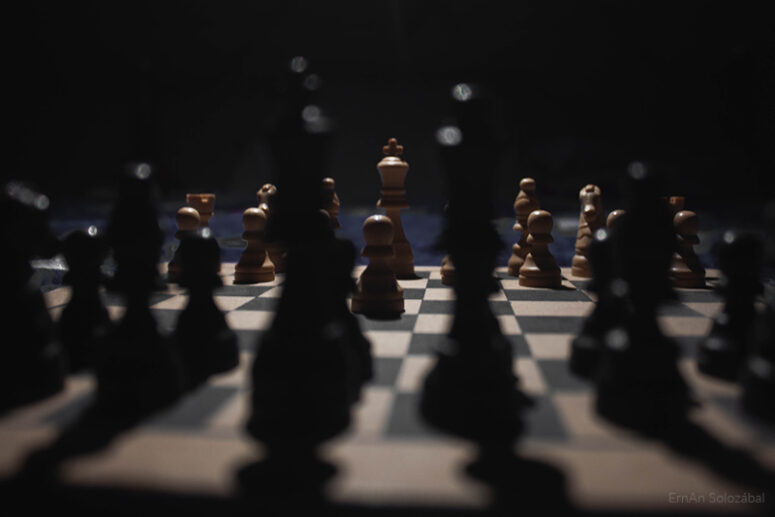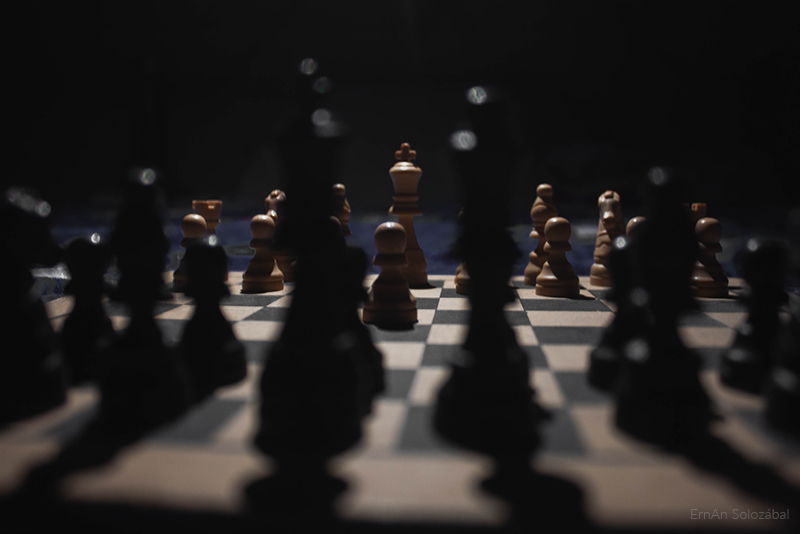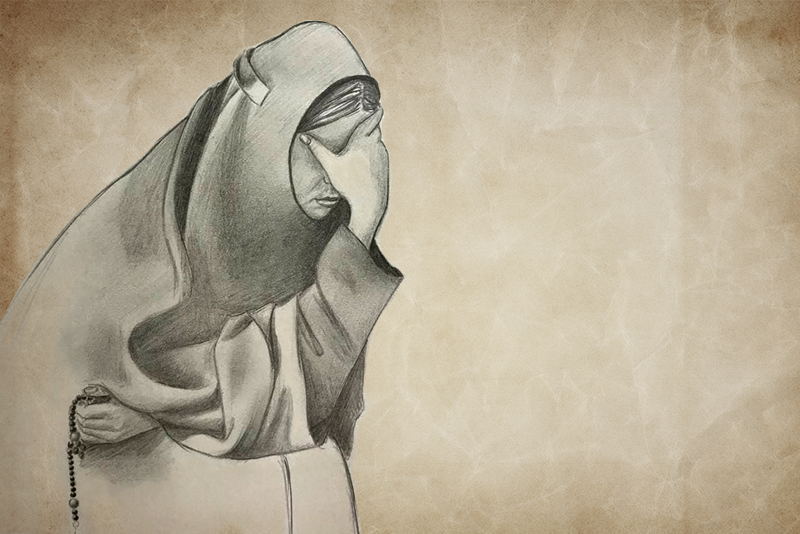
At first sight, opposition to chess on religious grounds seems a strange proposition. Today, chess is a popular pastime and sport, just as football or boxing; children learn to play chess at chess clubs, many older people enjoy playing it for many hours. Chess tournaments are being organised, even at parishes and dioceses. So who would ever have denounced it as a game from the devil, and why?
Surprisingly, there is a history of opposition to chess in the Catholic church and also among the Orthodox. In the Orthodox church, chess has been prohibited by individual hierarchs and even by the rulings of its Synods. Some Сatholic bishops ruled against playing chess in the 11th to 13 centuries. In Russia, the Hundred Chapter Synod of the Orthodox Church has condemned the game. In its decision, the Synod invoked Chapters 50 and 51 of the Sixth Ecumenical Council. As we can see, examples of prohibiting chess are found in the histories of both the East and the West. Incidentally, the decision regarding Chess of the Hundred Chapter Synod has never been formally repealed.
So what should this mean for us today? Should we give up playing chess to comply with a ban that is more than 500 years old, and tell others to do the same? Chess is still not a game that everyone can play, so some might even listen. But should they?
We may disregard the arguments of the Catholic prelates and Cardinals of old. The Regensburg Council struck chess from the list of prohibited games in 1393. The Hundred Chapters Synod is a more interesting story. Its decision invoked Rules 50 and 51 of the Sixth Ecumenical Council concerning games and entertainments. The Synod prohibited chess, while the Ecumenical Council said nothing about it for one obvious reason: the 50th rule was directed against gambling. In his comment on the rule, John Zonaras noted that the rules 43 and 42 of the Holy Apostles also prohibited gambling. Bishop Nikodim Milas explains these rules simply and straightforwardly: “By the games mentioned herewith we understand any gambling game in which one man seeks to take from another the greatest possible amount of money or is set to lose his estate or the estate of his family”. What the Christians found unacceptable was not the games per se, but the practice of gambling. Has often do we play chess for money? Rarely, because chess is not a gambling game.
On the other hand, we could turn any game into a gamble if we wanted. Centuries ago, dominoes used to be a popular monastic pastime. It was ubiquitous among Catholic monks everywhere, practised with great enthusiasm and a prayer. The name of the game is reminiscent of this – it was the custom among monks to call to God (Domini, in Latin) before each game. If someone wanted to play dominoes for money, would that be possible? Definitely. Would this be gambling? Certainly. But would this be enough to classify dominoes as a gambling game? Not in the least. Dominoes was not intended for gambling, and playing it for money is not the norm. Like the dominoes, chess was never intended as a gambling game. It would be difficult to imagine a game less suited for this purpose. Why, then, did the Synod prohibit it by its fiftieth chapter? Do not look for a reason, because there was not any.
The Synod of a Hundred chapters had brought together many fathers of the Church. Could they have been so incompetent as to lump cards and other forms of gambling with dominoes and chess? Let us have no illusions. Even some bishops in these years could be less educated than many graduates from a church seminary. How else might we explain the adoption of the following rule: “If anyone should fail to give his blessing with two fingers, as Christ did, or should fail to make the sign of the cross with two fingers, may he be accursed” (Chapter 31). The appropriateness of making the sign of the cross with two fingers is beside the point here. The makers of the rule believed that Christ was gaving his blessings during his lifetime by making the sign of the cross because he was depicted in icons with his two fingers raised. They were probably using the same logic to conclude that if the Ecumenical council had prohibited gambling games that meant all the games, including chess. Irony aside, the Synod of a hundred chapters was a controversial event in history. The Orthodox have been breaking many of its rules for centuries. For example, many of us shave in the morning, even though the Synod had prohibited shaving. Interestingly, Tsar Ivan the Terrible, who initiated the Synod met his death over a game of chess.
So how do we make sense of this multitude of binding and non-binding rules? The answer is simpler than you might think. We should not treat as fixed in stone any Synod rules that concern purely secular matters, such as our daily lives or culture. These may have been relevant and important for their time, such as the rule against the use of fragrances by priests or against keeping large breeds of dogs for bishops. But times change. Some rules on church life remain valid for many centuries, while others are relegated to history.
Playing chess is something that we may all enjoy without reservation – as a sport, an intellectual pastime, a philosophy and even as a mental exercise. We may all rest assured: playing chess is not a sin or a temptation from the devil.
Translated by The Catalogue of Good Deeds
Source: https://pravlife.org/ru/content/pravda-li-chto-shahmaty-besovskaya-igra





who said: … the heart of man is always inclined for evil …?
how many “good things” brought up by human civilization in so called “progress” were indeed used for the good of humans?
Look at all the “beauties” of today’s human world … it’s “splendid achievements” which might results … why not ?… from the practicing of the “innocent game (not gambling)” Chess … innocent game … of WAR !!! … which is/was not used in fighting the real enemy of the human race … because is of no use with him … instead turned it against each-other.
IT’S A WAR GAME!!!!! … with everything that’s coming/came out of it …
we, the Christians – orthodox, are talking about and are send by our spiritual father, almost paramount, to a primordial virtue achieving on the narrow path we are called to walk toward the Christ’s Kingdom: Obedience!
Sadly, we’ve failed and, it seems, continue gloriously to fail to this Great Virtue … especially when we twist it’s real Goal into a more readily achieved, pragmatic one, that anchors us the more, to this world with its fake “scientific” reality.
… I wonder how many Pillars of the Church … used to play this ancient game in order to get closer to Christ? … or we should disregard them because the “different” era we’re living in?
Best wishes to all who struggle for the salvation of their souls! …
… Thought to ponder on: … “CHASE versus RUCCODELIA” … on our path to salvation.
In the end I’m asking for forgiveness for any offence my words might arise within anyone who would bother to read this … please consider it as coming from a collateral damage on my perceptions due to this stinking virus pandemic
Thank you Mikhail, I thought the article would discuss the war aspects of chess but it did not.